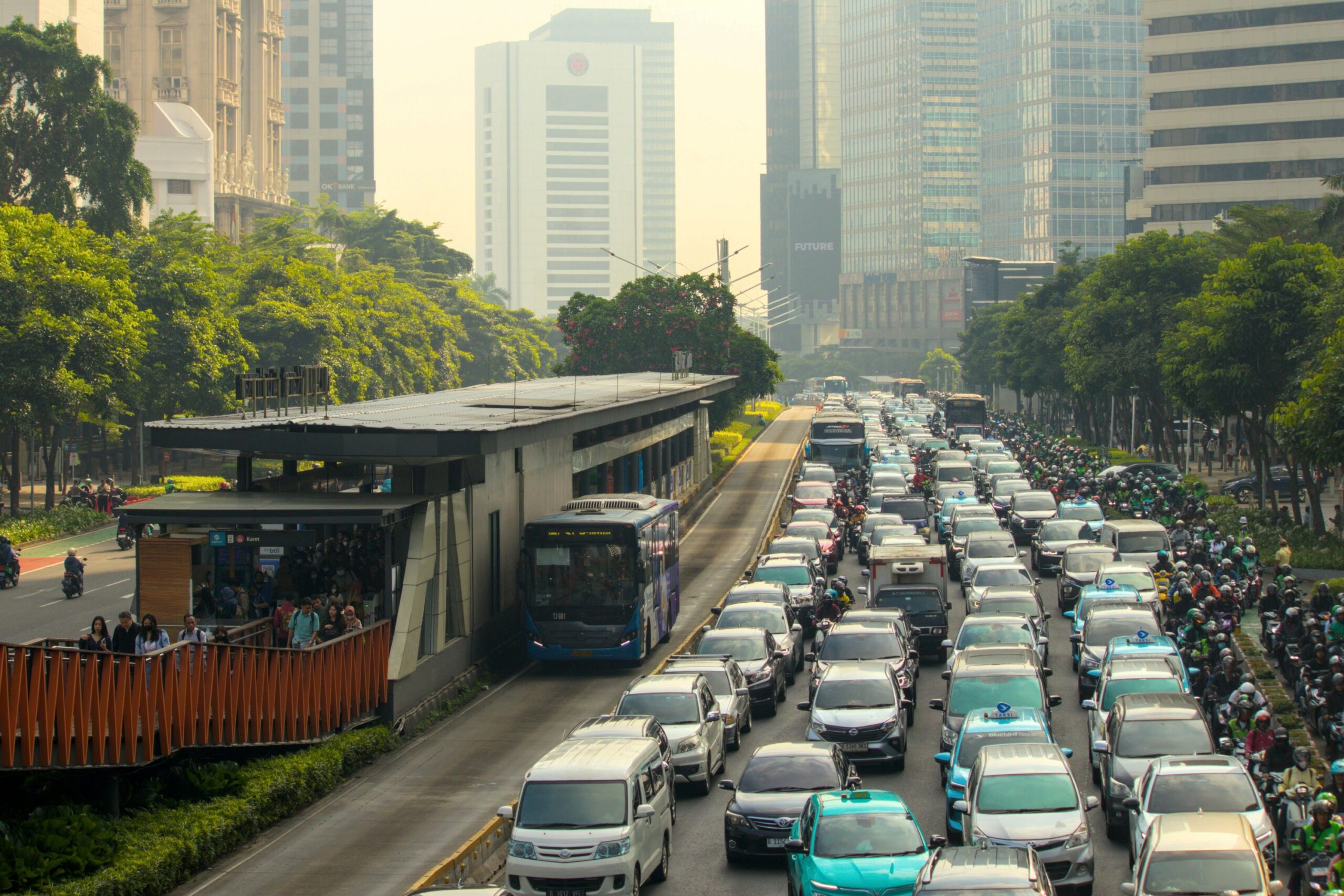Jakarta aspires to become a true global city, positioning itself as a vital hub in the transnational economy and aiming to attract capital, talent, and innovation from around the world. However, despite ambitious urban development plans, the daily experiences of many residents still reflect persistent issues, especially chronic traffic congestion and severe air pollution.
According to a recent survey conducted by Kompas Research and Development (Litbang Kompas) between June 10–14, 2025, involving 400 respondents, satisfaction with the Jakarta provincial government’s handling of public services remains mixed. Only 27.4% of respondents said they were satisfied with efforts to ease traffic congestion—the lowest satisfaction rate among all issues surveyed. Air pollution control did not fare much better, achieving a satisfaction level of merely 30.1%.
Other concerns that received relatively low approval included addressing economic inequality (33.3%), combating crime (43.2%), tackling organized street crime (41.4%), and waste management (46.7%). While flood mitigation earned slightly higher approval at 54.7%, these figures show that Jakarta residents expect much more comprehensive solutions.
Despite these challenges, the survey also found that 87.9% of respondents support Jakarta’s vision to transform into a world-class metropolis. Overall, 71.3% of participants described the provincial government’s performance as good, although 26.2% remained dissatisfied.
Gubernatorial leadership has been an important factor in shaping these perceptions. In response to criticism about unmet promises, Jakarta Governor Pramono Anung emphasized openness to public feedback.
“We ask for your prayers and support. If something doesn’t meet expectations, please criticize us as strongly as possible,” Pramono said during a gathering with the Indonesian Democratic Party of Struggle (PDI-P) at the Jakarta International Velodrome, as quoted by Tempo.
A separate survey conducted by Ethical Politics between May 19–26, 2025, captured public sentiment after the administration’s first 100 days in office. The survey, titled “Assessing Public Cognition and Satisfaction with 40 Quick Wins of Jakarta’s Governor,” involved 1,280 respondents selected through stratified random sampling. It reported an overall satisfaction rate of 77.73%, while 22.27% expressed dissatisfaction.
Hasyibulloh Mulyawan, Executive Director of Ethical Politics, explained that the administration under Governor Pramono Anung and Deputy Governor Rano Karno is viewed positively for understanding Jakarta’s core problems and working quietly but effectively.
“Respondents believe their leadership has successfully absorbed public aspirations and translated them into relevant policies,” Hasyibulloh stated, as reported by Koran-Jakarta.
Breaking down the numbers further, 78.1% were satisfied with how well the administration listens to public input, while 76.4% approved of the government’s commitment to fulfilling campaign pledges. However, transparency in budget management still requires improvement, receiving a lower satisfaction score of 67.89%.
Some of the administration’s flagship programs, including the Jakarta Smart Card, the Jakarta Superior Student Card, diploma legalization, and Jabodetabek transport integration, were widely recognized and appreciated. Yet, initiatives like the Jakarta Collaboration Fund, mixed-use development projects, and the plan to build Cakung International Hospital remain less familiar to the public.
Cyril Raoul Hakim, the Governor’s Special Staff, welcomed the positive survey results but stressed that the administration would not become complacent.
“Indeed, there are still shortcomings here and there, and perhaps three and a half months is simply not enough time to resolve all of Jakarta’s complex problems,” he concluded.
While Jakarta continues its journey to become a global city, the core of public satisfaction remains clear: residents simply wish to breathe clean air and move around the city without endless traffic jams.
Source: GoodStats, Tempo, Koran-Jakarta
Photo Credit: Dapur Melodi (pexels.com)


